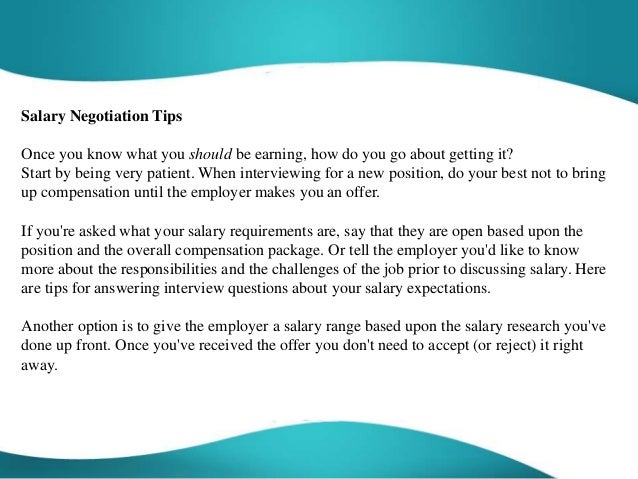The public obviously doesn't recognize the sacrifice it requires to go into extensive debt for one's education and training. Most therapists in recent years must also pay for their own post-degree supervision hours, which runs into thousands of hours for which they pay for out-of-pocket because there are so few funded training sites. In the old days hospitals and government institutions were more than happy to provide training spots and many of these positions were funded by the federal government albeit at very low cost. Refused to reimburse hospitals and clinics for services performed by residents about 20 years ago, the training spots have dwindled.
Also, in spite of incurring 5-6 figure student loan debt, psychotherapists do not make a lot of money. There is substantial overhead attached to running a practice and insurance reimbursement rates have not kept up with inflation or COLAs. In fact, over the last 30 years, insurance reimbursement rates have declined by over 50 percent with rates averaging less than a dollar increase annually. In contrast the salaries of members of Congress have risen by by over 55% during the same time range and incomes of insurance executives and their employees have also risen handsomely. Yet many MH professionals in private practice do not provide themselves with benefits because they cannot afford to do so unless they have a partner or spouse who is covered. There is a Mental Health Parity Act that was passed in 2008 and was supposed to put mental health coverage on par in every respect with other medical coverage.
In effect, running a mental health practice in many, if not most, parts of the country is not sustainable. I hope that MH professionals continue to fight for MH Parity and Equity and that the public advocates as well. Counseling psychologists may make more than clinical psychologists do, and the 2015 average annual salary was placed at $85,000.
The projected job growth rate by 2028 is 15 percent, which is much faster than average. They also work in private practice and in Employee Assistance Programs , which are mental health programs that some employers provide to help employees deal with personal problems. I am a licensed mental health counselor and feel frustrated with how difficult it is to keep explaining why mental health is important and why getting services from a provider costs what it costs. I see it often, clients don't fully understand the value of this service and hold unrealistic expectations as to how much or even why they should have to pay our fees. Yes, it is true that there are unethical therapists out there.
Besides, who in their right mind would want to underpay for any service? Most of the time I believe, it is a matter of priorities clients may have. Some clients would not think twice about spending $100 eating out of buying things they don't necessarily need, but think twice before paying their therapist. I find that clients who value our service are less resentful about paying for a therapy session and are more invested in the process.
The field of clinical psychology employs the most workers of any field within psychology. These professionals assess, diagnose, treat, and prevent mental illnesses and disorders. They work in a wide range of settings, such as mental health clinics, hospitals, and private practices. As with other psychological professions, salaries vary widely. The most important factor affecting salary is years of experience.
Clinicians with 5 years of experience, for example, earn about $60,000 a year, whereas clinicians with 14 year of experience earn about $115,000 a year. The greater your level of education, the higher your counseling salary is likely to be. Bureau of Labor Statistics, master's degree graduates can expect to earn approximately $12,000 more in annual salary than individuals with a bachelor's degree. A master's degree in addiction counseling will also open the door to a variety of more advanced career opportunities—such as treating co-occurring mental health disorders. Learn more about the value of earning your master's degree in addiction counseling. There are other careers that pay more, but few professions that are more rewarding than being an addiction counselor.
And while you may not get rich with a job in substance abuse counseling, you can make a good living. Addiction counseling is a fast-growing field with an excellent long-term job outlook and many opportunities to grow your earning potential with the right training and education. In this article, we'll take a look at how much you can expect to earn as an addiction counselor, salary ranges for different types of jobs and ways that you can maximize your earning potential.
Our master's degree programs integrate coursework and training in mental health and co-occurring disorders and emphasize hands-on clinical experience. Our graduates are in demand in all areas of addiction prevention, treatment and recovery, and are employed in jobs in substance abuse counseling across the nation. The fields of counseling psychology and clinical psychology are closely related; in fact, the two involve roughly the same type of work, such as mental health treatment and psychotherapy. Many counseling psychologists, instead of working with clients, choose to teach at universities, conduct scientific research, or offer vocational counseling.
While clinical psychology may not be the highest-paid area of psychology, it is one of the most popular with more people holding positions in this subspecialty than in any other area. Clinical psychologists typically work one-on-one with their patients as they work to diagnose, treat and prevent all types of mental illness. While many practice psychology in a hospital or clinic, a number of clinical psychologists have chosen to become private practice therapists, opening their own clinics or even operating out of their own homes. However, wherever these individuals work, they must be licensed in their state as clinical psychologists.
Before licensure, these individuals must complete their doctoral work and complete at least one to two years in a supervised residency program. Some job titles for these individuals include army mental health specialist, navy psychologist and marine psychologist. In addition to studying psychology and receiving a doctoral degree, these individuals must also become members of the military. Another great option for some is to complete their graduate school internships at military posts, a lucrative option that can pay around $70,000 per year in some areas. Interns can also receive 30 days of paid leave along with free medical and dental care along with plenty of other great benefits.
Of course, those who are active military members with doctoral degrees in military psychology can expect to earn far more than this, with many bringing in around $120,000 every year. Growth is expected due to the increasing use of integrated care, which is a treatment of multiple problems at one time by a group of specialists. In providing integrated care, marriage and family therapists are working with counselors such as substance abuse, behavior disorder, or mental health counselors to address patients' issues as a team. As a side note, most practices make no pay distinctions between psychologists, social workers, mental health counselors, and marriage and family therapists. Because social workers, mental health counselors, and MFTs get a lower reimbursement rate from insurance companies anyway.
Hence I encourage all practices to pay everyone with the same formula. There are many potential paths your career can take, and a wide range of salaries you might earn. Of course, it's useful to know which careers pay the best, especially in difficult economic conditions. To that end, here's a guide explaining which psychology careers have the highest annual salaries as of 2019, and what education and training are required for those careers. Keep in mind, though, that salaries can vary greatly depending on a number of factors, such as years of experience, educational achievement, geographic location, and more. People in community mental health are incredibly underpaid, especially for the education level.
I've seen way too many people go into the field and never make it to the 5 year mark. And private practice shouldn't be required to make it in this field. This system is unhealthy for less-established practitioners and it's unhealthy for clients that are low income, uninsured, or underinsured. Some art therapists work as part of a health care team that includes physicians, psychologists, nurses, mental health counselors, marriage and family therapists, rehabilitation counselors, social workersand teachers. Together, they determine and implement a client's therapeutic goals and objectives.
Other art therapists work independently and maintain private practices with children, adolescents, adults, groups and/or families. Online counseling is one remarkable development in mental health care that has come out of the online technology boom of recent years. Two such platforms, BetterHelp and Talkspace, have become two of the most popular platforms used by individuals seeking support. At first glance, counseling psychology may sound much the same as clinical psychology. However, the primary difference is that these practitioners generally work with individuals who are suffering from less severe types of mental illness. These professionals work daily to create positive physical, mental and emotional health in their patients, working with individuals of all ages from every socioeconomic area.
Counseling psychologists must understand normal mental health and development while being able to recognize problem areas quickly. This is truly a one-on-one practice that requires psychologists to develop healthy, long-term relationships with their patients to accomplish personal and practical goals. The salary for a substance abuse counselor depends on a variety of factors, including the level of education you attain, where you practice counseling and the type of treatment setting in which you work. Here are points to keep in mind as you consider ways to increase your salary in the field of drug and alcohol counseling. To become a marriage and family therapist, applicants need a master's degree in psychology, marriage and family therapy, or a related mental health field. A bachelor's degree in most fields is acceptable to enter one of these master's degree programs.
When you search for online therapy jobs, be very specific about your search to avoid searching through thousands of unrelated job listings. For example, if you search "therapy jobs online" you'll receive results for "all" therapy jobs online. If you're a mental health counselor, results for school therapists, admissions counselors, enrollment counselors, or any other therapistonlinearen't what you need. I have a question about the Fair Labor Standards Act as it applies to mental health therapists. We would like to pay them on a straight productivity basis (i.e., a 50/50 split of receipts), but we were advised by an attorney that this is not allowed under the FLSA. Under the FLSA, a therapist employee is classified as a "learned professional" which means they must be paid a minimum salary of $684 per week (as of Jan. 2020).
So we have a hybrid pay system that pays the FLSA minimum plus an additional amount based on productivity. This is very time consuming to calculate for each payroll period, plus it reduces the incentives for counselors to get their notes done on time so we can bill for completed sessions. Bureau of Labor Statistics' current Occupational Outlook Handbook, the median annual salary according to 2020 data for licensed mental health counselors is $47,660. Actual salaries may vary greatly based on specialization within the field, location, years of experience and a variety of other factors. It's estimated that one in four Americans is affected by mental health issues each year. Choosing counseling as a career means that you'll face numerous challenges and opportunities—but the social, personal, and financial rewards could also be great.
Here are some statistics on salaries, job growth, and employer types for counselors. Psychiatrists definitely earn the most of any professional in the field of psychology. In fact, according to the United States Bureau of Labor Statistics, or BLS, psychiatrists on average earned in excess of $220,000 annually as of 2018. There are also plenty of opportunities for employment in this field with the need for psychiatrists growing at a slightly faster rate than average when compared to jobs in America as a whole. Individuals interested in psychiatry should keep in mind that their annual income will vary based on the type of organization for which they work and the area of the country where they live.
Some therapists may charge as much as $200 or more per session, but most will charge $75-$150 a session. Many therapists work with a sliding scale fee schedule, which means their fee will depend on your income level. If you have out-of-network benefits with your insurance plan, you may be reimbursed for the majority of what you pay the therapist.
Your therapist's office can create a ledger for you to submit to your insurance company for reimbursement. If costs are an issue, many areas have community mental health agencies that provide therapy at a reduced fee. Some individuals working in the field of psychology earn around $40,000 a year, while others earn six-figure salaries. Psychologists who work in schools or the government usually have full-time schedules during normal business hours, Monday through Friday.
Those who work in hospitals or other healthcare facilities may have evening and weekend hours. And psychologists in private practice typically have the option to set their own hours. A school psychologist may have a wide range of job duties depending on where he works. However, he will most likely work with students of all ages who require mental health resources for managing stress and anxiety when taking tests or applying to college.
These professional may also counsel students who are dealing with anxiety or depression or who have contemplated suicide. Because they often work with underage children, school psychologists typically have a great deal of paperwork to complete for every case. In addition, they must stay in close communication with the student's parents and with other teachers and staff.
It takes most individuals 12 years to become licensed psychiatrists. They must attend undergraduate school and graduate school while also completing a residency before earning a medical degree. These individuals receive extensive training in psychology while also learning more about traditional medicine so that they can see the connections between physical and mental health.
This education will help them better understand the pharmacological needs of their patients and will allow them to treat their patients who are hospitalized. Although mental health is such a weighty problem here in the United States and around the world, there is hope. Today, professionals know about many ways to combat out-of-control feelings, addictions and concerning emotions.
While these mental health professionals may be called by many different names, most of them have one thing in common, and that is a degree in psychology. Where you work as a substance abuse counselor can also have a significant impact on your counseling salary. If you intend to open your own practice, where you work also affects requirements for licensing and certification, continuing education and insurance. Learn more about licensure and certification for addiction counseling. It also gives you the opportunity to work in many different types of treatment settings, and develop skills that you can apply to a wide range of careers.
Psychologists who work in outpatient care centers make an average salary of $150,150, according to the Bureau of Labor Statistics. Because of Affordable Care Act laws and regulations, there will be an increased demand for psychologists in outpatient care centers. Psychologists in outpatient care centers are required to have the same licenses and academic credentials as clinical psychologists. A Doctor of Psychology degree is the most common degree for clinical psychologists. I also attend many sites, including Youth Off The Streets schools, where I provide drug and alcohol education classes.
I conduct counselling and group support at Youth Off The Streets Dunlea Drug and Alcohol Youth Service day program. I provide staff training, support and mental health counselling for young people at our Don Bosco drug and alcohol crisis centre. Marriage and family therapists work with individuals, couples, and families. They bring a family-centered perspective to treatment, even when treating individuals. They evaluate family roles and development, to understand how clients' families affect their mental health.
They treat the clients' relationships, not just the clients themselves. They address issues, such as low self-esteem, stress, addiction, and substance abuse. This takes up to three months, but it can be waived if you have some previous experience. You then apply for a certificate in counselling skills , followed by a diploma in counselling .
Alternatively, you can train through a university counselling degree. Every course is rooted in an academic theory that informs the way counselling is conducted in practice. Once you've completed your time as a therapist intern becoming a behavior therapist is a big deal. You've likely thought about this career or job for a long time and considered why you want to help others. Maybe you've been through mental health issues yourself or perhaps you've got family members or loved ones that struggle with them.



























No comments:
Post a Comment
Note: Only a member of this blog may post a comment.